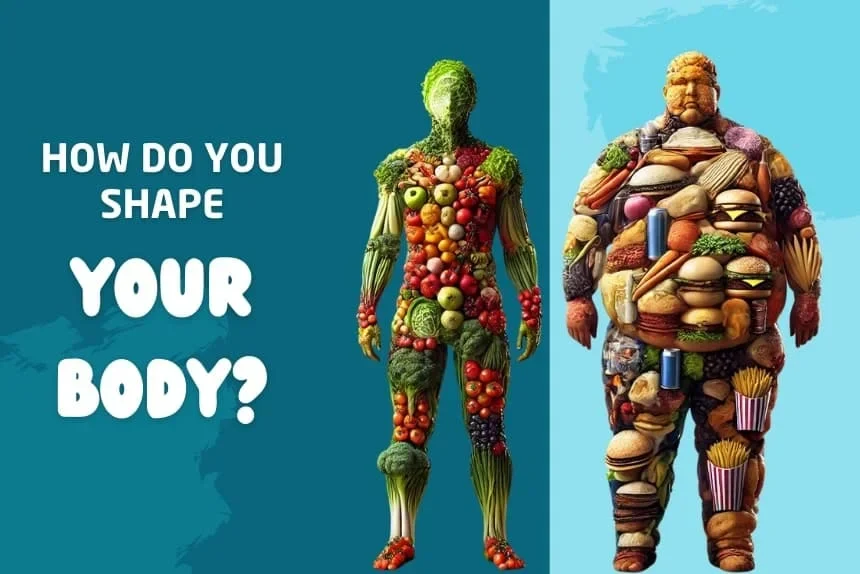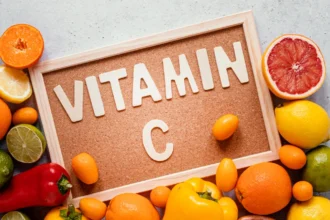“You are what you eat.“ It’s a phrase we’ve all heard before, but what does it actually mean? Simply put, the food you consume directly impacts your body composition, energy levels and overall health.
The image accompanying this article illustrates this concept: a body fueled by nutrient-dense, whole foods versus one built from processed, unhealthy foods.
At Healiscope, we believe nutrition is the foundation of well-being. This article explores the science behind how food shapes your body, helping you make informed choices that truly nourish you from the inside out.
“You Are What You Eat” What Does That Really Mean?
Every cell, tissue, and organ in your body is formed from the nutrients you consume. Your body isn’t just fueled by food—it’s built from it.
Food does more than just satisfy hunger or provide energy; it supplies the raw materials necessary for every function in your body.
✔ Macronutrients – Proteins, carbohydrates and fats form the structural components of your body.
✔ Micronutrients – Vitamins and minerals play a role in metabolism, immune function, and cellular repair.
The quality of your diet directly affects how your body looks, feels and performs. Let’s explore how these nutrients shape your body composition and long-term health.
The Foundation of Your Body—Macronutrients and Their Role
To understand how food shapes your body, you need to know the role of macronutrients. These are the three primary nutrients that fuel your body, support growth and maintain health.
🔹 Protein: The Building Block of Life
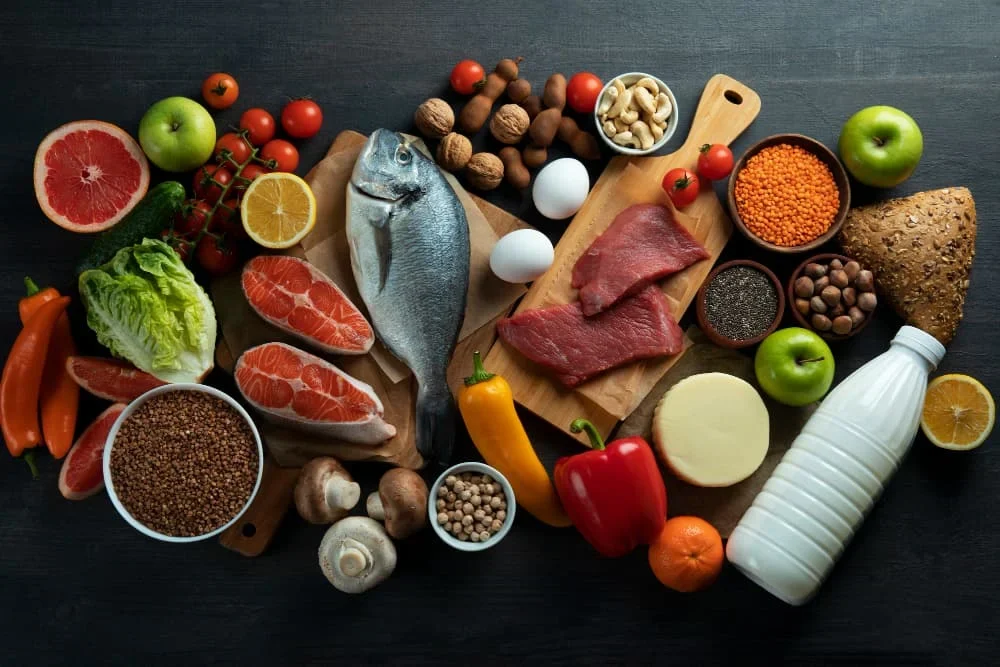
Protein is essential for:
✔ Muscle growth & repair – Helps build lean muscle mass.
✔ Immune function – Supports antibody production.
✔ Hormone & enzyme production – Crucial for metabolism.
✔ Satiety & appetite control – Keeps you feeling full longer.
Best Sources: Lean meats, fish, eggs, dairy, legumes, tofu, quinoa.
🔹 Carbohydrates: The Body’s Preferred Energy Source
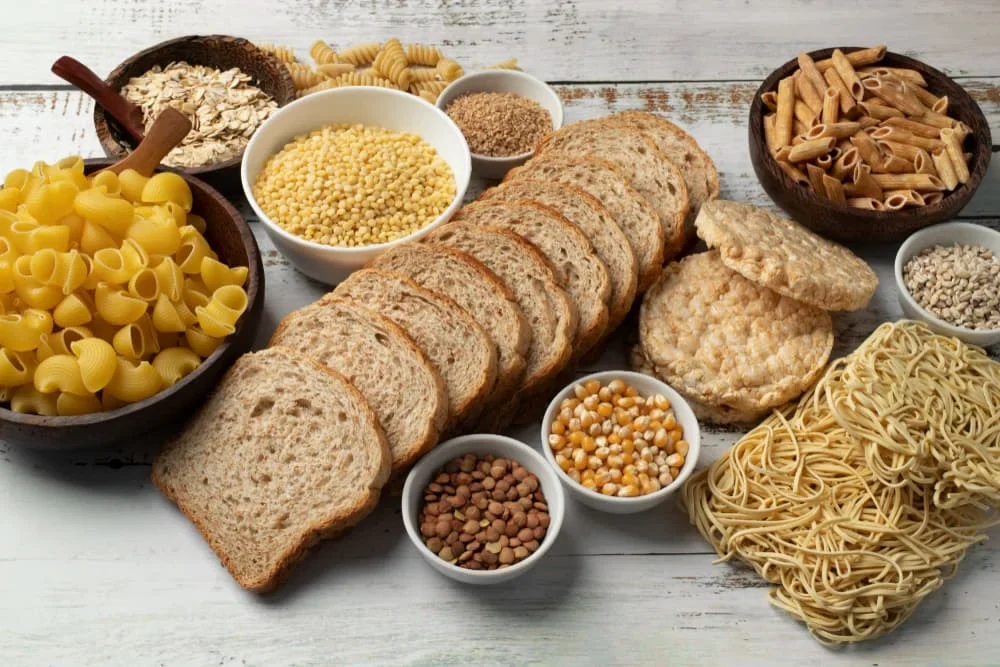
Carbs fuel your brain, muscles and organs, but quality matters:
✔ Complex carbs (whole grains, vegetables, legumes) provide sustained energy and fiber.
✔ Simple carbs (processed foods, sugary drinks) cause blood sugar spikes and crashes.
Best Choices: Brown rice, quinoa, whole wheat, oats, fruits, vegetables.
🔹 Fats: Essential for Hormones & Cell Health
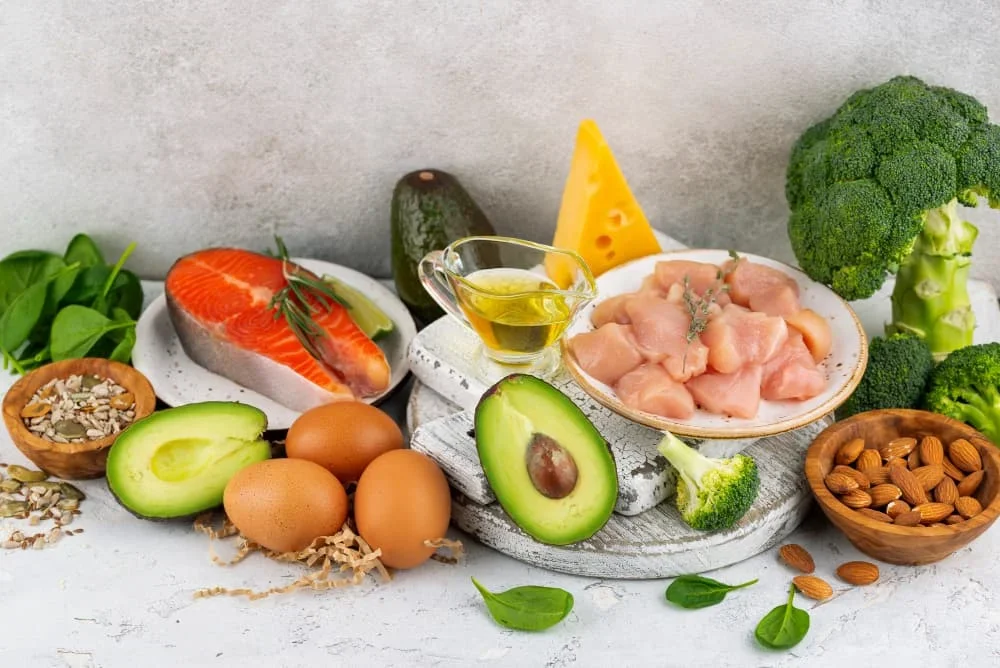
Despite misconceptions, healthy fats are essential for:
✔ Brain function & hormone production.
✔ Cell repair & vitamin absorption (A, D, E, K).
✔ Heart health & inflammation reduction.
Best Sources: Olive oil, avocados, nuts, seeds, fatty fish (salmon, sardines).
Balanced Intake: A well-rounded diet should prioritize lean proteins, complex carbs, and healthy fats for optimal body composition and well-being.
Beyond Macros—The Essential Role of Micronutrients
Macronutrients provide energy and structure, but micronutrients—vitamins and minerals—are critical for overall health.
🔹 Micronutrients help:
✔ Energy production (B vitamins, iron).
✔ Tissue repair & immune support (Vitamin C, zinc).
✔ Bone health (Vitamin D, magnesium).
✔ Nerve & muscle function (Magnesium).
❗ Deficiencies can lead to:
🚨 Fatigue & low energy (Iron, B12 deficiency).
🚨 Weakened immune function (Low vitamin C, D, or zinc).
🚨 Poor recovery from exercise (Lack of magnesium).
💡 Eating a varied diet rich in whole foods ensures you get these essential nutrients.

Healthy vs. Unhealthy Food Choices—Shaping Your Body from the Inside Out
The food you eat directly determines your body composition, energy, and overall health.
🔹 The Power of Whole Foods
A diet rich in whole, unprocessed foods promotes better energy, digestion, and disease prevention.
✔ Fruits & Vegetables – Rich in antioxidants, fiber, and vitamins.
✔ Lean Proteins – Essential for muscle building and metabolism.
✔ Whole Grains – Provide sustained energy and gut health benefits.
🔹 The Dangers of Processed Foods
A diet high in processed foods can negatively impact your body by:
❌ Contributing to weight gain (excess calories & sugars).
❌ Increasing risk of chronic diseases (diabetes, heart disease).
❌ Causing energy crashes (refined carbs & added sugars).
💡 Small, mindful changes can dramatically improve your body’s composition and function.
Building a Better Body with Food—Practical Tips
Transforming your body through nutrition doesn’t require drastic diets. Instead, focus on sustainable, informed choices:
✔ Start Small – Swap soda for water, add veggies to meals.
✔ Plan Meals & Snacks – Helps avoid unhealthy last-minute choices.
✔ Practice Mindful Eating – Eat slowly & stop when full.
✔ Stay Hydrated – Water is key for metabolism & digestion.
✔ Limit Processed Foods – Focus on whole, nutrient-rich options.
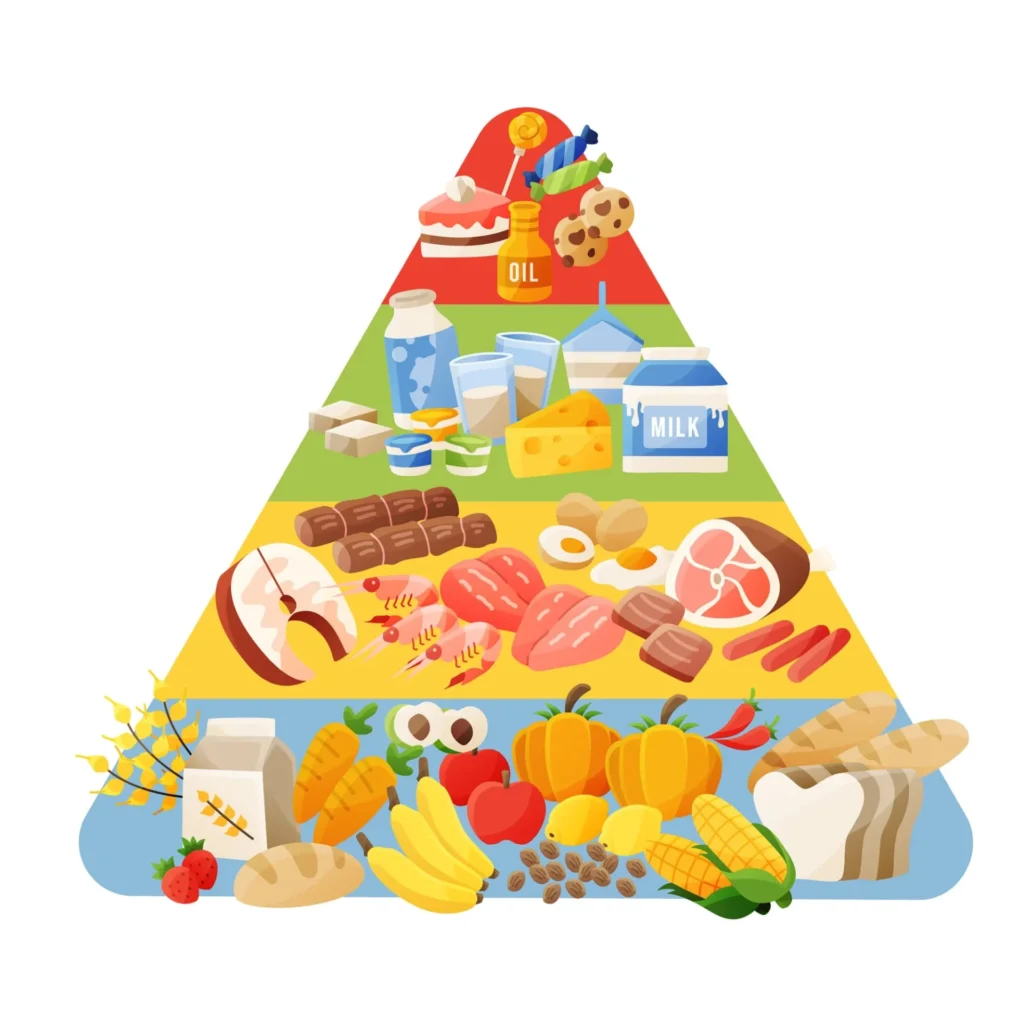
✔ Follow the Balanced Plate Method:
🥦 1/2 Plate → Vegetables & Fruits
🍗 1/4 Plate → Lean Protein
🌾 1/4 Plate → Complex Carbs
💡 Consistent, small changes lead to long-term success.
Conclusion
The phrase “you are what you eat” is a biological reality. Every meal you consume directly influences your body composition, energy, and long-term health.
By choosing nutrient-rich foods, you provide your body with the fuel it needs to function at its best. Start small, stay consistent, and trust the process—even minor changes can lead to significant improvements over time.
For more in-depth articles on food, nutrition, and overall wellness, explore our resources at Healiscope.
Frequently Asked Questions (FAQs)
Can I target fat loss in specific areas with diet?
No, spot reduction is a myth. However, a balanced diet + exercise = overall fat loss, which eventually affects all areas.
How quickly will I see results from changing my diet?
✔ Energy & digestion → Days
✔ Weight loss/muscle gain → Weeks/months
✔ Long-term health benefits → Sustained habits over time
Do I need to count calories to lose weight?
Not necessarily—focus on food quality & portion control.
Is it okay to have cheat meals?
Yes, moderation is key—an occasional indulgence won’t derail progress.
Sources:
- The Role of Macronutrients – Healthline
- Complex Carbohydrates: Why They Matter – Health
- Understanding Simple Carbohydrates – MedlinePlus
- Choosing Foods with Healthy Fats – Canada Food Guide

